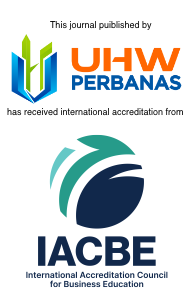Risk-based credit analysis using ethnomethodology approach
DOI:
https://doi.org/10.14414/tiar.v5i2.641Keywords:
Banking Industries, Credit Analysis, Credit Risk, and Portfolio TheoryAbstract
The economic activities in Mojokerto Regency are much related to the world of bank-ing. Therefore, banking industries in this regency have a very important role to pro-mote the economy of a country. This study is to determine the credit risk analysis and the causes of the possible occurrence of the risk, as well as the policies conducted to control of the credit risk. This research uses ethnomethodology, a method which focus-es on interview with informants based on their experiments. The data collection me-thod is observation, interview, documentation, and literature study. The result of this study shows the importance of the credit risk control policies, which are implemented by Bank Saudara Mojokerto Branch. Credit risk can be derived from both external and internal. Many researchers focus on the internal risk, such as human error or bad attitude of the bank staff. The implementation of credit risk control policies is intended to anticipate the fraud committed by internal bank staff.Downloads
Submitted
2016-09-06
Published
2015-12-01
How to Cite
Rahayu, Tri Puji, and Nanang Shonhadji. “Risk-Based Credit Analysis Using Ethnomethodology Approach”. The Indonesian Accounting Review, vol. 5, no. 2, Dec. 2015, pp. 111-8, https://doi.org/10.14414/tiar.v5i2.641.
Issue
Section
Articles
License
Copyright (c) 2016 The Indonesian Accounting Review

This work is licensed under a Creative Commons Attribution-NonCommercial 4.0 International License.
















